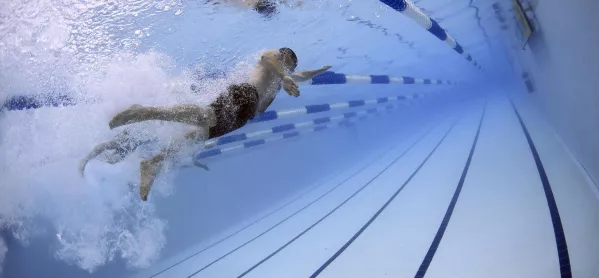“This is impossible!”; “I give up”; “I’m never going to understand”; “How come everyone else can do it and I can’t?”
It would be fair to say that each one of these utterances has caused my blood to boil during a lesson and each has instigated an exasperated lecture on learning. You know the sort of thing: “We must fail to learn - failing is all part of the process”. Or: “It’s character building to struggle.” And the classic: “You’ll feel more satisfaction when you finally crack it.”
Sometimes, it’s an exasperated moan at a whole class. Sometimes, it’s desperate cajoling of an individual, bordering on pleading; just try, please! I mean, it’s all true of course, but another truth that I’m ready to share is that all those phrases belonged to me. They came out of my mouth. Last week, in fact, at my improvers’ swimming lesson.
Changing the learning culture: How to create a mistake-friendly classroom
Swimming is like handwriting: Let young children ‘swim underwater’ in cursive
Long read: Failure is not an option (but it should be)
I can swim breaststroke, and front crawl (ahem...with a snorkel), but do you think I can do “the breathing”? My god, I’ve tried and tried and tried again, but I see no improvement whatsoever. I’m 34 and destined to be stuck in the slow lane, not even with the oldies because they’re faster than me - just alone.
Despite my shortcomings in the pool, the process has made me think about what it’s like to be a learner again. Not a learner working through a university MA in a subject you’re already good at and enjoy, but a learner struggling. A person battling to develop a skill that doesn’t come easily.
There are those students in our classes who are not naturally academic. I’m all for growth mindset, but realistically, it takes enormous amounts of resilience and an awful lot of emotional energy. It’s not like, when they rock up at your door, they’re fresh to the subject. They might have been trying to conquer analysis since S1 or trying to read fluently from primary school. Who could blame them for wanting to throw in the towel now and again? I’d been to only four swimming lessons before I became utterly disheartened that “I still can’t do the bloody breathing!”
‘Out of my comfort zone’
Learning a new skill has thrown me well and truly out of my comfort zone, and I’ve made a conscious decision to try to improve. As a 34-year-old teacher with her head (pretty much) screwed on, this is a taxing situation, but imagine the strife as a teen. Not only are you being thrust into learning a new skill every hour, going from one to the next, sometimes with little to show in the way of improvement - you’re also learning new things about yourself.
I realised quickly that I sounded whiny. I didn’t like it, was a shade embarrassed and modified my behaviour. As adults, we have the reflective capabilities to understand that if we learn something new about ourselves that we don’t particularly like, then we can change it. Adults understand that a reaction doesn’t define our character and our responses can be manipulated. But to children that’s not as clear. (I imagine, because I’m not going to pretend I really remember how tumultuous that feels, although I do recall feeling extreme desperation in maths and physics lessons. I must have been an absolute pain for teachers who saw potential but little self-belief.)
But that’s the thing about teachers. I’ve been in front-crawl breathing hell for five months now and can’t see a bit of difference in how I’m doing, but my teacher assures me, (and he’s not the type to lie), that I am dramatically better than when I started. It’s harder from the inside looking out, with the doubt nagging you. All you can see, clearly and vividly from the outside, is how wonderfully your classmates are coming along (Ray, I mean you).
A teacher can see the bigger picture: they’ve seen the journey so many times before from fairly useless to pretty competent. I’m going to try and remember during my next rant about negativity being unproductive that not only is failing a natural part of learning - so is a little doubt.
Sam Tassiker is a secondary teacher in Scotland





